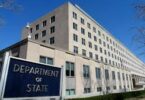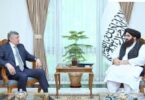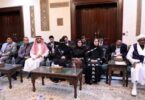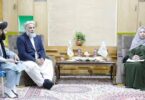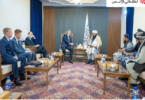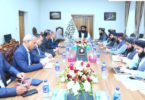Monitoring Desk
KABUL: Some lower house members on Wednesday claimed a parliamentary delegation was not allowed to Dasht-i-Archi district of Kunduz province to probe last week’s airstrike.
The Ministry of Defense (MoD) had claimed the April 4 airstrike killed 18 Taliban militants, including commander Baryalai, a member of Taliban’s Shura. The ministry had said another 11 Taliban were injured in the Afghan security forces’ airstrike and had alleged the rebels opened fire at innocent civilians after the airstrike, killing and wounding many.
But other sources had claimed tens of civilians were killed and injured in the airstrike on a seminary.
Speaking at Wednesday’s session of the Wolesi Jirga, lawmaker Allah Gul Mujahid said: “Lawmakers from Kunduz and Wolesi Jirga’s internal security commission entered a deal with the Defense Ministry not to allow the Wolesi Jirga delegation to Kunduz for investigation.”
Mujahid demanded investigation into the airstrike and said it was the lower house’s duty to monitor government’s activities.
But Fathullah Qaisar, who heads the internal security commission, said security bosses were summoned last week and later a lower house delegation was tasked with investigating the Kunduz airstrike. Qaisar said the panel would present its report to the house with ‘evidence’.
Eng. Kamal Safi, a lawmaker from Kunduz province, said: “As a representative of the Kunduz people, I had requested the lower house internal commission to investigate the incident, but no attention was paid.”
“Currently the people of Kunduz besides bearing Taliban’s atrocities are also victim of the current system,” remarked Safi, who without giving details, said in the past, Speaker Abdul Rauf Ibrahimi had also struck a deal on the future of Kunduz people.
Deputy speaker Humayon Humayon said the investigation delegation should travel to Kunduz otherwise it would mean the house had failed to monitor government’s activities. “It would be a weakness of the house.”
He asked lawmakers and members of permanent commissions to put pressure on the government through media and reach out to the problems of Kunduz people.

